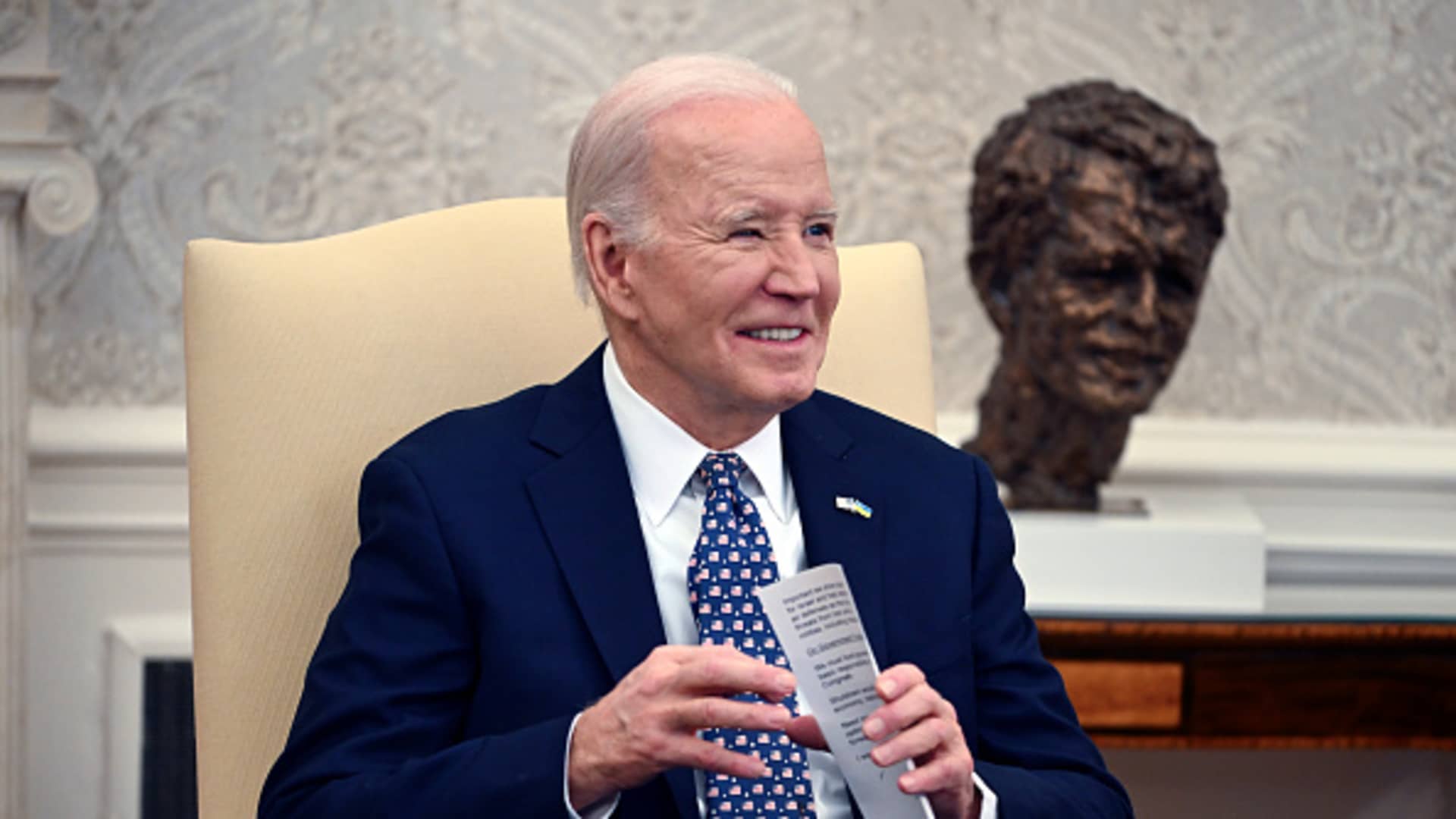US President Joe Biden and Vice President Kamala Harris meet with Senate Minority Leader Mitch McConnell (R-KY), House Speaker Mike Johnson (R-LA), Senate Majority Leader Chuck Schumer (D-NY) , and House Minority Leader Hakeem Jeffries (D-NY) at the White House on February 27, 2024 in Washington, DC
Roberto Schmidt | Getty Images
President Joe Biden signed Congress’s $1.2 trillion spending package on Saturday, finalizing remaining bills in a long-awaited budget to keep the government funded through Oct. 1.
Almost halfway through the fiscal year, the president’s signature ends a months-long saga in which Congress struggled to pass a permanent budget resolution and instead passed emergency measures that nearly averted government shutdowns.
“The bipartisan funding bill I just signed keeps the government open, invests in the American people, and strengthens our economy and national security,” Biden said in a statement Saturday. “This agreement represents a compromise, meaning neither side got everything it wanted.”
The weekend budget agreement was announced just before the midnight Friday funding deadline, as is typical this fiscal year as last-minute disagreements derailed nearly completed deals.
The Senate passed the budget by a vote of 74-24 around 2 a.m. ET Saturday morning, technically two hours after the deadline due to last-minute disagreements. However, the White House said it would not take official closure measures because an agreement had ultimately been reached and only procedural measures were needed.
The House passed its own vote Friday morning after struggling for a week to resolve a lingering point of contention: funding for the Department of Homeland Security, which the White House grappled with last weekend. The White House’s concerns further delayed the negotiating process just as lawmakers were preparing to release the legislative text of the budget proposal.
This trillion-dollar tranche of six budget bills will fund agencies working in defense, financial services, homeland security, health and human services and more. Congress approved $459 billion in early March for the first six budget bills, which included less partisan and easier-to-negotiate agencies.
With the government finally receiving funding for the remainder of the fiscal year, House Speaker Mike Johnson, R-La., has eliminated at least one looming problem.
But in doing so he may have created another.
Hours before the House passed the spending package Friday morning, House Republican hardliners held a news conference to lambast the bill. Shortly after the House narrowly passed the bill, far-right Republican Rep. Marjorie Taylor Greene of Georgia filed a motion to remove Johnson.
If ousting a House speaker over budget disputes seems like a familiar story, that’s because it is.
In October, after former Speaker Kevin McCarthy struck a deal with Democrats to avert a government shutdown, the House voted to remove him, becoming the first speaker in history to be removed from the post. Johnson has sought to appease the House’s hardline Republican wing, the Freedom Caucus, to avoid a similar fate.
Source link
2024-03-23 17:18:16
www.cnbc.com







